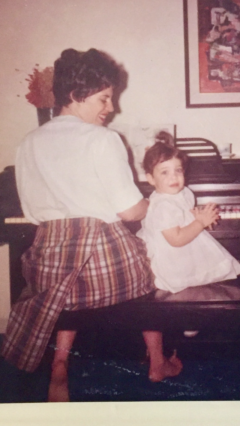Recently I read an article in Spirituality and Health magazine whose title initially irritated me mercilessly, “Find the Good in Grief.”
Oy vey.
Once I started reading the article, I was relieved to discover it was not another attempt to put a sugar-coated, positive spin on grief.
“You lose your car keys. Not people. Losing people is an act of carelessness. Dying it was people do. Losing is what you do to them.”
This quote from the article resonated for me because since the death of my mother in 2016, I have bristled at the phrase “I LOST my mother.” I haven’t lost her. She is dead, but she is not lost in the way one loses keys, or a hat, or a password.
Grief is a response to death or an ending that impacts us physically, emotionally, spiritually and more. The language of death and mourning can be alienating, disappointing, even offensive at times. This is particularly true in mainstream American culture where the messiness, vulnerability and tenderness of grief is denied, ignored or pathologized. Words like emptiness, sorrow, yearning, heaviness, disorienting–these words embody some of the nuanced qualities of grief. For some, grief can also be freeing, transforming, and ultimately regenerative.
Sometimes I feel literally lost without the embodied, relational touchstone I felt when my mother was alive. I am learning that my mother is still that inner compass for me, so when I am lost, I listen to her guidance with my soul’s ear.

